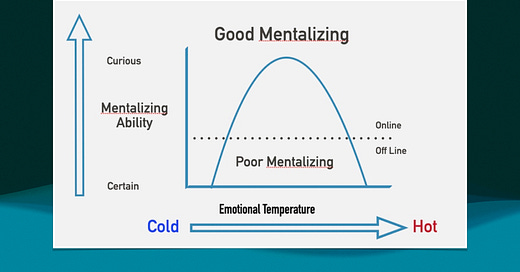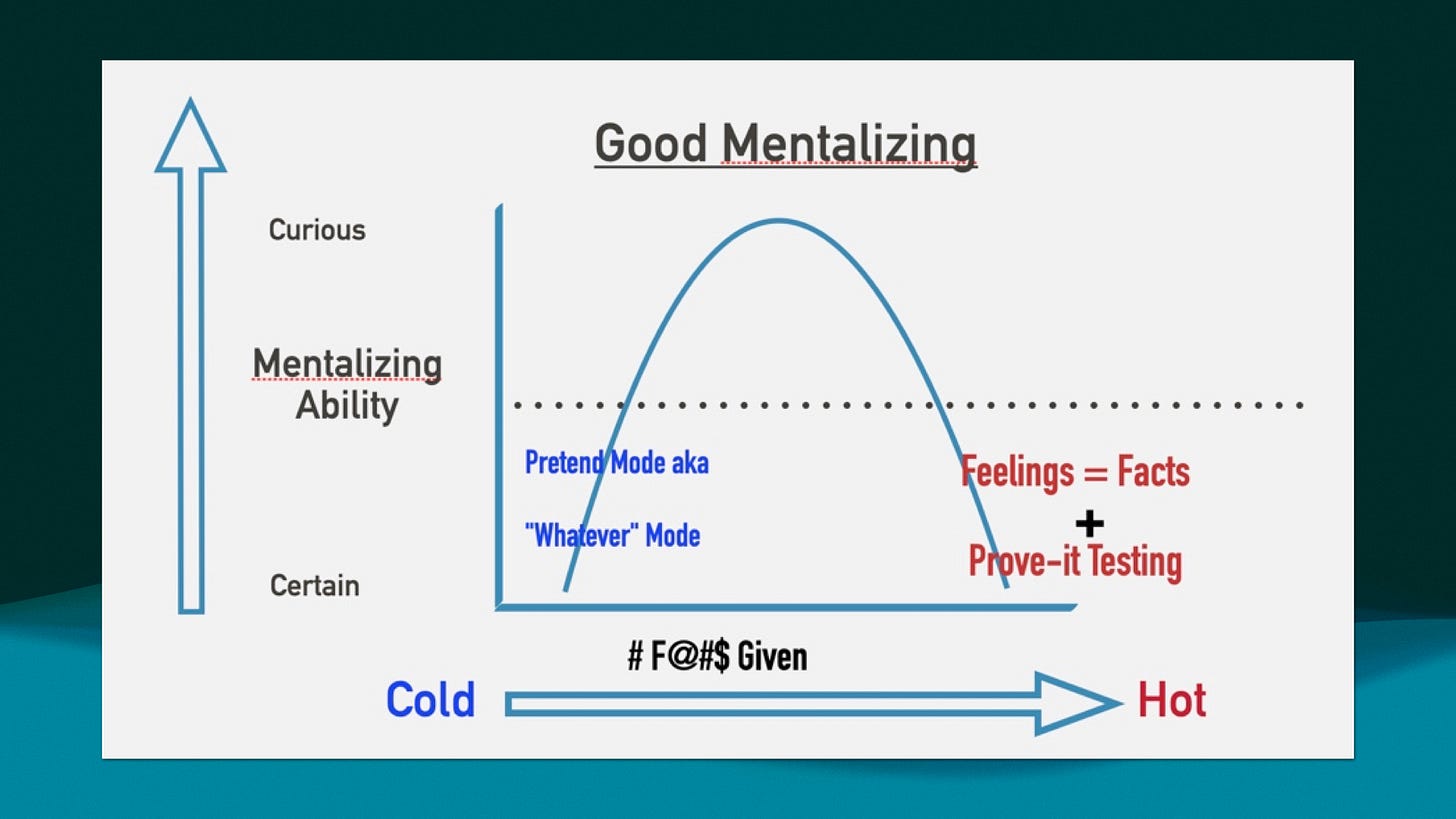Mentalization Based Treatment: A Visual Guide II
How does our ability to understand go off line?
I regularly give talks on mentalization-based treatment (MBT). I have a decent slide deck on the topic, and this is the second article in the series. Part One is here…
I have one book on the topic…available here.
In part one, we establish that mentalizing is the ability to understand a misunderstanding. It's the ability to work out what's going on in our own minds and those of others. Maybe another definition would be mindfulness for both of us? It's a clunky word, but I didn't make it up, so I don't think you should blame me for this. Why are you blaming me? Oh, that's getting too hot thinking about being judged. That would be my mentalizing going offline. It turns out this happens in reliable ways and humans when our emotions get too hot or too cold.
Join me for the next part of that explanation, with illustrations. Much to my embarrassment, I neglected to remove the red underline under the word mentalizing, and my keynote didn't know how to spell the time. And I did a screenshot anyway. How embarrassing. How shameful! As we can see, as my emotional temperature continues to increase, it's likely that my ability to stay curious about what my readers are thinking is apt to fall off-line.
The ability to stay mindful and demure? That's probably mentalizing working. And it works best in the lukewarm emotional temperature range.
But what specific problems in our thinking can happen when we get either too hot or too cold emotionally? Our next illustration highlights specific non-mentalizing modes:
I've also replaced the labeling of the horizontal access with something a little funnier, “number of F&$&s given.”
I know, I know.
When we get too hot, our feelings can become the facts. What's in our mind can be assumed to be what's in the mind of somebody else.
Peter Fonagy, one of the co-developers of MBT as a treatment, explains it well in this brief video:
Just like the little kid who thinks his mom wants a truck for her birthday— because it's what he would want— any of us can have our feelings get so hot we assume that other people are thinking what we're thinking. If you believe someone else is mad at you, it's because they are mad at you, in that state. The other version of “too hot” is when the only way we can understand somebody else's mind is with concrete proof. Are you sorry you forgot my birthday?
Oh, those flowers are pretty beautiful, and they look very expensive. You must love me. That's concrete proof. No matter how upset I was, those beautiful flowers could help cool me down! Without concrete proof? We can fail to understand that others understand us. If this all feels a little abstract, we have some videos and other resources below the fold and paywall that help make things clear:






